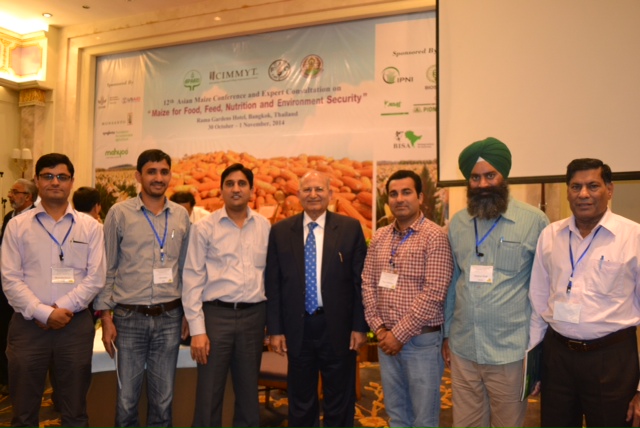-
About
- Our Work
- Get Involved
- Stay Updated
Maize - A major food security crop in developing countries

The opportunities for the use of maize as food, feed, fodder as well as its use in the industrial sector is significantly increasing in the Asian countries. When reviewing the needs of the poultry sector and the expansion of the maize seed industry, farmers from North West India (Haryana, Punjab and Western Uttar Pradesh) show inclination towards the maize cultivation.
In the years to come, maize will be a major food security crop in several developing countries. At the same time, maize production and productivity in North West India is constrained by many factors, including the lack of training and knowledge transfer to the resource-poor farmers; abiotic and biotic stress; lack of drying machines; etc.
Intensive tillage practices or how to deteriorate Biodiversity
From the 30th of October to the 1st of November, 2014, it was held the 12th Asian Maize Conference and Expert Consultation on “Maize for Food, Feed, Nutrition and Environmental Security” at the Rama Gardens Hotel in Bangkok, Thailand. I decided to attend it in order to get acquainted with the scope and implications of maize cultivation in Asia in general and in North West India in particular.
During the conference, Dr. Yashpal Saharawat, YPARD India representative, and Dr ML Jat showed how intensive tillage practices deteriorate organic soils and biodiversity. Moreover, according to them, these practices increase the energy and labour cost in cereal based cropping systems.
Climate Smart Agriculture - the solution to improve soil health
Improved crop establishment practices, particularly zero-tillage, residue management, and bed planting in maize based cropping systems will continue to provide new platforms for many young farmers following the principles of Climate Smart Agriculture (CSA). Thanks to these principles, the productivity and sustainability of the system can be enhanced to offset the production cost, ground water depletion, energy use and resource degradation in Haryana (India).
Climate Smart Agriculture is the best way to maximize the organic carbon pool and minimization of deterioration in soil health for producing environmentally safe, social acceptable and economically sustainable crops and cropping systems in North West India.
On the way to access food and nutritional security in Asia
The present International Conference gave us an excellent opportunity to discuss and sharpen our skills in solving the problems of maize production and productivity. It also helped in promoting ideas on increasing the area under maize based cropping systems in North West India to increase the resource use efficiency and to check the depletion of ground water while maintaining and improving the quality of environment.
In turn it will help to improve productivity of maize based cropping systems and sustainability of natural resource base to access food and nutritional security in Asia.
About the author
Related Posts
Comments
No comments made yet. Be the first to submit a commentBy accepting you will be accessing a service provided by a third-party external to https://www.ypard.net/
Get in touch
Email: [email protected]
YPARD Global Coordination UnitHosted by AGRIDEA and the Czech University of Life Sciences Prague
Lausanne, Switzerland and Prague, Czech Republic - Our Work


